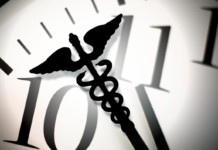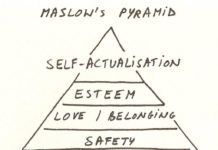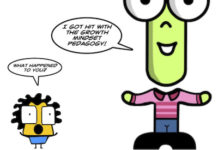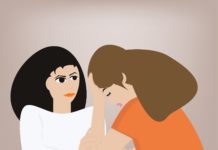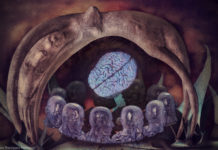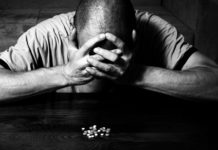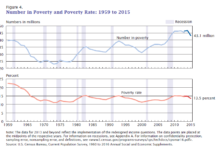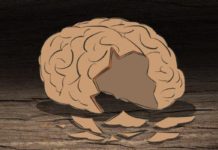The “Essential Principles” of Psychiatric Practice: More Psychiatric Cheerleading
In the May 2018 issue of Current Psychiatry, renowned psychiatrist and editor in chief Dr. Henry Nasrallah provides a list of 27 "principles of psychiatric practice," most of them self-serving platitudes. There's one principle he has omitted, if we are to consider his own career to be exemplary: Cultivate mutually beneficial relationships with pharmaceutical companies.
Psychotherapists Reflect on Lack of Improvement in Therapy
Qualitative research examines the experiences of psychoanalytic therapists in their work with patients whose symptoms either failed to improve or worsened.
Busting 7 Myths About the Practice of Psychotherapy
All in all, it is not enough that public policy pundits push for greater access to mental health services. Alongside improving access, there needs to be renewed focus on the quantity and quality of psychotherapy the average American currently receives. Health insurers need to reexamine their false assumptions about the effectiveness of short-term, quick-fix therapies.
Despite the Evidence, Overprescription of Stimulants Continues
A new study finds that stimulant prescribing rates to children continue to rise despite the well-established evidence documenting overdiagnosis of ADHD and overprescription of stimulants.
Massive Reforms for Pharmaceutical System Proposed
The US/Canadian Pharmaceutical Policy Reform Working Group proposes universal drug coverage and ambitious reforms to the pharmaceutical system.
Is Psychosis Natural?
Much of the wild world is now a garden: a rational, controlled space. Yet if we step out of the garden and back into the old growth, I believe the process of psychosis belongs as part of Earth’s “will,” of her wild. The physiological process of psychosis—that of amplified senses—is ecologically purposeful. Not good nor bad, but part of what Nature does trying to grow. Here I share a talk I gave in Boulder, Colorado exploring these themes.
Learning to Speak Psychotic
One of the biggest barriers that people who are “psychotic” face is one of communication: other people often have trouble understanding what they’re talking about. The way they describe their experience and their ideas are simply foreign to most people. This lack of clear communication is what gets them labelled as “psychotic” in the first place, and thus it leads to a breakdown between the “psychotic” and the rest of society. This is a loss to both groups.
Randomized Controlled Trials of Psychiatric Drugs Tell of Harm Done
The most important data in an RCT is not whether the drug provides a statistically significant benefit over placebo. The most important data is the “number needed to treat” calculation (NNT). For the person considering taking an antidepressant or an antipsychotic, the NNT data provides the “math” needed to weigh the potential benefit of taking the drug against the potential harm of doing so.
Suicide in a Culture of Mandated Happiness – Who’s to Blame?
We live in a culture of mandated positivity and compulsory happiness, which somehow remains untouched by the current political, social, ecological and economic realities of the world. If you’re distressed, it must either be your bad attitude (which is a choice) or your broken brain (which is not a choice); god forbid we look anywhere outside the self.
Psychologist Debunks Common Misconceptions of Maslow’s Hierarchy
Utilizing Maslow’s published books and essays, psychologist William Compton delineates common myths and attempts to respond to them.
Are Students Benefiting From the Growth Mindset Model?
Results from two meta-analyses reveal shortcomings with the growth mindset theory as applied in schools.
Spotlight on Institutional Psychiatry
Spotlight on Institutional Psychiatry is a response by psychiatric survivors and allies to Operating in Darkness, a scathing 2017 report on British Columbia’s Mental Health Act Detention System. We hope that professionals will take note of the devastating effects of forced psychiatric treatment and be moved to speak out, and, above all, that survivors will feel encouraged and inspired by our efforts.
Antidepressants Are Not More Effective for Severe Depression, Study Finds
A new study, published in Acta Psychiatrica Scandinavica, found that antidepressant efficacy was not dependent on severity.
Researchers Explore Sexuality and Gender in the Context of Psychosis
Nev Jones and a team of researchers examine how sex, sexuality, and gender-related content are underexplored in contemporary research on psychosis.
TED Betrays Its Own Brand By Flagging Nutrition Talk
Four years after Rucklidge gave her talk on using micronutrients for psychiatric disorders, why did TED suddenly decide to flag it as falling “outside TEDx’s curatorial guidelines?” And why did it do so when her talk—a review of published science, by a researcher who has conducted placebo-controlled studies on this topic—obviously met TED guidelines? Our guess is that they caved to outside pressure.
Rising Rates of Suicide: When Do We Acknowledge That Something Isn’t Working?!
Scapegoating a purported unseen "illness" may provide temporary comfort from acknowledging the horrors and injustice of the world, but it is a delusion — and one with fatal consequences for many. When 45,000 people a year would rather die than live in this world any longer, it might behoove us all to consider what is happening in the world to cause this.
Psychotherapy is Less Effective and Less Accessible for Those in Poverty
A special issue explores the connection between poverty, mental health, and psychotherapy.
Study of Online Antidepressant Forums Reveals Long Lasting Withdrawal Effects
Effects of discontinuing SSRIs and SNRIs reported on an online forum indicate significant and long-lasting withdrawal symptoms.
The Forced Psychiatric Treatment of a Child
This is my story of forced psychiatric treatment as an eight-year-old girl, from my perspective as an adult mental health professional. Being held down kicking and screaming to be injected with a benzodiazepine is a human rights violation no child should endure for saying no to a pharmaceutical. In hindsight, when I reflect on that day, it feels like a form of child abuse.
So What’s This About Another Webinar Series on Psychiatric Drug Withdrawal?
With this second course we are focusing on the challenges that drug withdrawal presents to prescribers as more and more people seek to come off medications. As many have noted, prescribers may have extensive experience getting patients on psychiatric medications and then managing their drug use, but little or no experience helping patients taper off the drugs.
Review of Pediatric Antidepressant Studies Finds Evidence of Benefit Lacking
Review of pediatric antidepressant studies finds the vast majority are negative on primary outcomes and an increased risk for suicidality.
Experts Question the Benefits of Brain Imaging Research for OCD
Two experts—a leading neuroscientist studying OCD, and a psychiatrist specializing in OCD treatment—question whether expensive brain imaging research has added anything to the treatment of OCD.
Dear Roseanne, The Blood is At Your Doorstep
Chatter about Roseanne Barr's racist tweet is taking up far more space in our collective culture than, say, the murder of any one black or brown person by police in our country. If we want to shine light on the relationship between psychiatry and racism, let’s turn our attention to the people getting overlooked. People like Dontre Hamilton, whose death was the focus of the documentary ‘The Blood is at The Doorstep.’
Prominent Researcher and Psychotherapist Questions “Evidence-Based Therapy”
Dr. Johnathan Shedler recently published a paper critiquing how the term “evidence-based” is being used in the field of psychotherapy.
Perspectives on “Reality” from an Alternative Epistemology
Contemplating human existence with a different paradigm of thinking will open our minds to perceiving the profound human diversities rooted in race and culture, developmental experiences, gender identities, sexual orientations, trauma, hunger, or immigration status, to name but a few ways we are or become profoundly diverse as humans.





